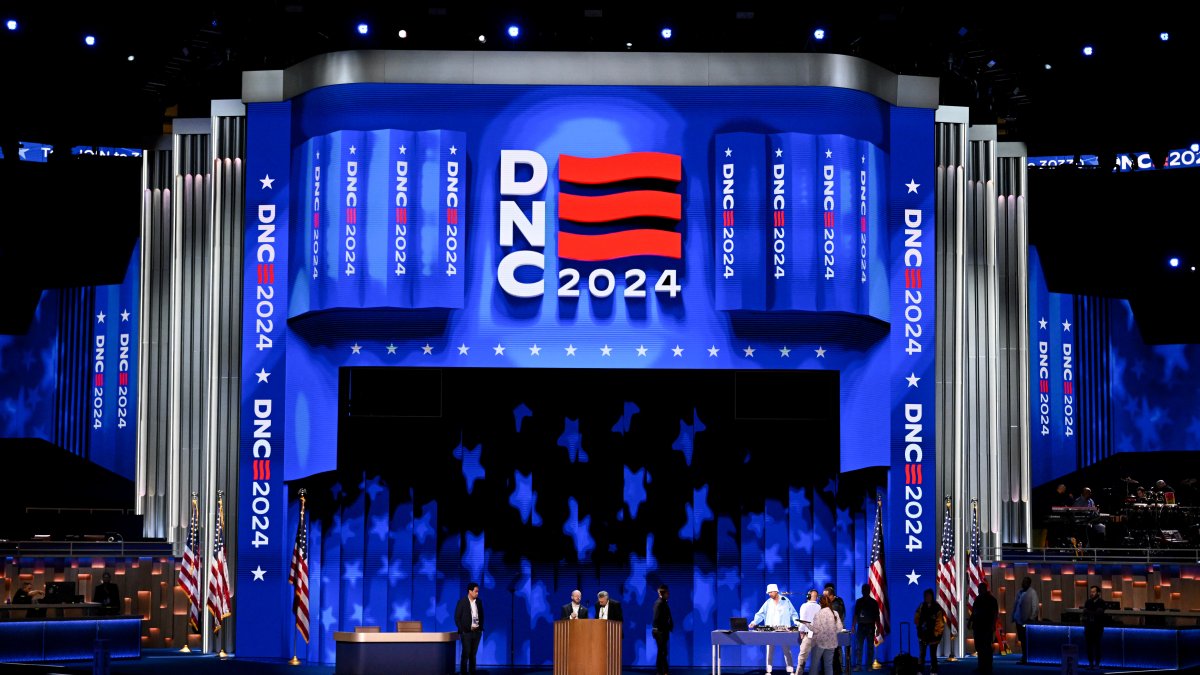Throngs of Democratic party members have flocked to the Democratic National Convention in Chicago to celebrate the selection of Vice President Kamala Harris as the party’s presidential nominee.
While certain members, known as delegates, typically decide on the presidential nominee during a party’s convention, that won’t be the case this time around. The vote will only be ceremonial.
On Aug. 6, Harris officially won the Democratic presidential nomination in an online vote, the first time a nominee was named prior to a party’s convention.
The Democratic National Committee calls the ceremonial vote a “celebratory Roll Call” and said in a statement the event would give delegates the opportunity to “celebrate the nomination” of Harris, who is the first woman of color to lead a major party presidential ticket.
Although the situation is different than previous conventions, questions have surfaced online regarding what exactly delegates are and the role they play in determining a party’s nominee.
What exactly is a delegate?
Delegates are simply people who represent their states or districts at their party’s national convention, according to NBC News. They can be individuals can be anyone affiliated with the Democratic or Republican political party, and often include party leaders, activists and volunteers.
Democrats have about 3,900 voting delegates for the first ballot at the convention, and more than 4,600 for subsequent rounds of voting, if necessary. On the other hand, Republicans had 2,429 delegates voting at the convention.
Candidates are awarded delegates in most states based on the results of primaries and caucuses.
Are there different types of delegates?
Delegates can be divided into two broad categories: pledged and unpledged, as Democrats call them, or bound and unbound, as Republicans call them.
Pledged and bound delegates must vote for a particular presidential candidate at the convention based on the results of the primary or caucus in their state. These are the delegates who are up for grabs on any given primary or caucus night. The requirement to vote for a specific candidate lasts at least through the first round of voting at the convention, but depending on state and party rules, some pledged and bound delegates become free to vote for any candidate on subsequent rounds of voting.
Pledged and bound delegates can be further divided into at-large delegates and district delegates. At-large delegates represent the entire state, while district delegates represent specific districts within the state, usually congressional districts but sometimes state legislative districts. Democrats have an additional type of pledged delegate that Republicans do not: party leaders and elected officials, or PLEOs. These tend to be notable local elected and party officials, though not governors or members of the U.S. Senate or House.
Unpledged and unbound delegates may support any presidential candidate regardless of the primary or caucus results in their state or local district. On the Democratic side, unpledged delegates may not vote on the first ballot in a closely contested race but are free to vote for any candidate in subsequent rounds of voting. Democrats adopted this rule after the 2016 election in order to limit the power of unpledged delegates, formerly known as “superdelegates.” All Democratic governors, U.S. senators and representatives, current and former Democratic National Committee chairs and former presidents serve as unpledged delegates.
For Republicans, delegates from Guam, Montana, New Mexico and South Dakota will be unbound and free to vote for the candidate of their choice, according to the plans released Tuesday.
How are delegates allocated?
The Democrats and Republicans use different approaches to allocating delegates.
The Democratic Party has a uniform approach to delegate allocation across states, where candidates who meet a 15% threshold are awarded delegates proportionally. For reference, here is where the Democratic delegate count stood when Biden was still in the race:
However, the Republican Party uses three different systems:
- In states that allocate delegates proportionally, candidates receive a number of delegates based on the percentage of the vote they won. Using this method, candidate who receives 40% of the vote would receive 40% of the total number of delegates at stake.
- In states that use a winner-take-all method, all delegates at stake are awarded to the candidate who receives the most votes.
- Hybrid methods are also used in some states, where delegates are allocated based on a combination of factors, including minimum thresholds or the ability to convert from proportional to winner-take-all when a candidate gets a majority.
Vice presidential nominee selection
You might be wondering – do delegates also choose the vice presidential nominee too? Yes, though the procedure is separate and it usually occurs on a different day of the convention.
The vice presidential nominees of both parties are usually selected by acclamation, or a voice vote by the entire convention delegation, rather than through a separate roll call vote. The process is usually a formality, because the identity of the presumptive vice presidential nominee is often known well before the convention.
Why was the official nomination vote held before the convention this year?
DNC officials first indicated in May that they would conduct a virtual roll call before the convention to clear a potential hurdle in getting the Democratic nominee on the ballot in Ohio. Ohio’s deadline to file for the general election ballot was Aug. 7. Although the deadline had been modified in previous presidential election years to accommodate late-summer conventions of both parties, this year state Republicans initially planned to enforce the existing deadline, with one GOP lawmaker calling the scheduling bind “ a Democratic problem.”
The Republican-controlled Legislature did eventually make an accommodation for the convention at the behest of Republican Gov. Mike DeWine, but the law does not go into effect until Aug. 31. Citing concerns that Ohio Republicans could still try to block their candidate from getting on the ballot despite the legislative fix, DNC officials moved forward with their virtual roll call as originally planned.
